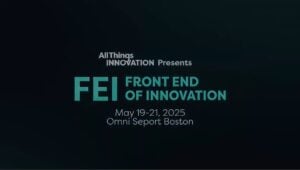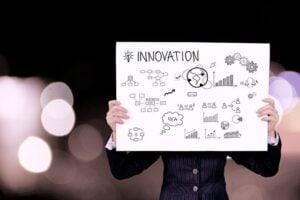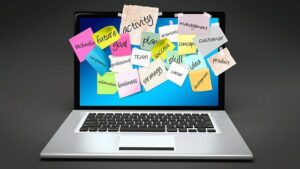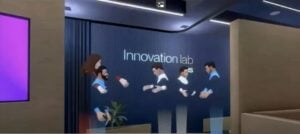The Age of AI
In this emerging age of AI, just how can you adapt and pivot for the future? While no one can completely predict the future of work, business and education, you can better prepare your career to reinforce your valuable skills. A variety of AI tools are in the market and are being used, and the growth of these tools in the future seems evident. One question might be, just how better can we become by embracing and using these new tools?
In a Harvard Business Review article, “5 Ways to Future-Proof Your Career in the Age of AI,” by Dorie Clark and Tomas Chamorro-Premuzic, some key strategies emerge. These are “strategies that professionals can deploy to generate unique value, even as AI begins to showcase its prodigious (and exponentially increasing) power. In other words, what can we do personally to stave off the displacement that may happen as a result of AI and future-proof ourselves in the age of intelligent machines?”
- Avoid predictability: Just as some corporations have recognized that boilerplate “corporate speak” turns off customers, we may discover the advantage of sounding like ourselves — and embracing our own personality, serendipity, and unpredictability — when everyone else is turning to AI.
- Hone the skills that machines strive to emulate: Soft skills matter. Humans are wired to respond to genuine emotions — so actually knowing and caring about what others think and feel, truly understanding yourself, and being capable of creating something machines cannot is an essential strategy to set yourself apart in the age of AI.
- Double down on “the real world”: It’s essential to recognize that one thing AI can’t disrupt is our analog, in-person connections with others, so it’s important to carve out time and safeguard those. They represent an opportunity to build connections and gain insights that simply aren’t possible through AI — and thus, they represent a unique competitive advantage we still possess.
- Develop your personal brand: The rise of AI doesn’t change the fact, crucially tied to human nature, that branding matters.
- Cultivate expertise: It’s valuable to develop recognized expertise in your field. Even if AI performs “first draft” functions, it still has to be double-checked by a trusted and reliable source. If that’s you, you’ll continue to be sought out because you have the authority to vet AI’s responses.
Career Insurance
In “Layoff-Proof Your Career: The Consultant Mindset,” All Things Innovation contributor Gail Martino, Senior Program Manager, Unilever, discusses how a conversation with a vice president early in her career mapped out some critical advice that she termed, “The Consultant Mindset.” See Martino’s column for some advice on how you can leverage that mindset in your own career.
In “The Future of Work is Reshaping Trends in Innovation,” we posed the question, just what does the future of work hold in store for the business of innovation? This new future of work will be impacted by both talent and business trends taking shape. On the talent side, notes Gartner, is the move towards human-centric work design; a reshaping of the culture; managing in a hybrid world; and digital enablement. On the business side, this also includes the rethinking of the workplace and the shifting of talent and skills.
The Resilient Mindset
Future-proofing your innovation career involves staying adaptable, continually learning, and positioning yourself to thrive in a rapidly evolving professional landscape. Here are some top tips, courtesy of ChatGPT, to future-proof your innovation career:
- Embrace Lifelong Learning: Stay curious and commit to continuous learning. Stay informed about emerging technologies, trends, and methodologies in innovation.
- Develop a Diverse Skill Set: Cultivate a range of skills beyond your core expertise. Skills such as critical thinking, creativity, adaptability, and communication are increasingly valuable in innovation roles.
- Stay Technologically Savvy: Keep abreast of technological advancements relevant to your field. Understanding emerging technologies and their potential applications is crucial for staying at the forefront of innovation.
- Cultivate a Growth Mindset: Embrace challenges as opportunities for growth. A growth mindset fosters resilience and a willingness to take on new and unfamiliar tasks, which is essential in an evolving professional landscape.
- Network Actively: Build and maintain a strong professional network. Attending industry events, engage in online communities, and connect with professionals across disciplines to stay informed and open up collaboration opportunities.
- Seek Cross-Functional Experience: Gain experience working across different functions and disciplines. Exposure to diverse perspectives and methodologies will enhance your problem-solving abilities and make you a more versatile innovator.
- Be Agile and Adaptable: Develop the ability to adapt quickly to changes. The business environment is dynamic, and being agile in your approach to projects and challenges is an asset.
- Showcase Results and Impact: Clearly communicate the impact of your work. Highlight tangible outcomes and results to demonstrate your contributions to the success of innovation projects.
- Foster a Collaborative Mindset: Collaborate with colleagues, both within and outside your organization. Innovation often thrives in collaborative environments, and the ability to work effectively in teams is a highly valued skill.
- Stay Ethical and Responsible: Be mindful of ethical considerations in innovation. As technology evolves, ethical issues become more prominent. Demonstrate a commitment to responsible innovation and consider the broader societal implications of your work.
- Be Resilient: Innovators often encounter setbacks and failures. Develop resilience and the ability to learn from failures, using them as opportunities for improvement and growth.
Think Like A Futurist
By incorporating these tips into your career development strategy, you can enhance your resilience, adaptability, and effectiveness as an innovator, positioning yourself for long-term success in a rapidly changing professional landscape. One more piece of advice: Fast Company’s Stephanie Vozza, in an article on the future of work, advises that one think like a futurist when it comes to future-proofing your career: “Future-proofing your job means always thinking two or three steps ahead.”
Video courtesy of The Way We Work, a TED series
Contributor
-

Matthew Kramer is the Digital Editor for All Things Insights & All Things Innovation. He has over 20 years of experience working in publishing and media companies, on a variety of business-to-business publications, websites and trade shows.
View all posts













































































































































































